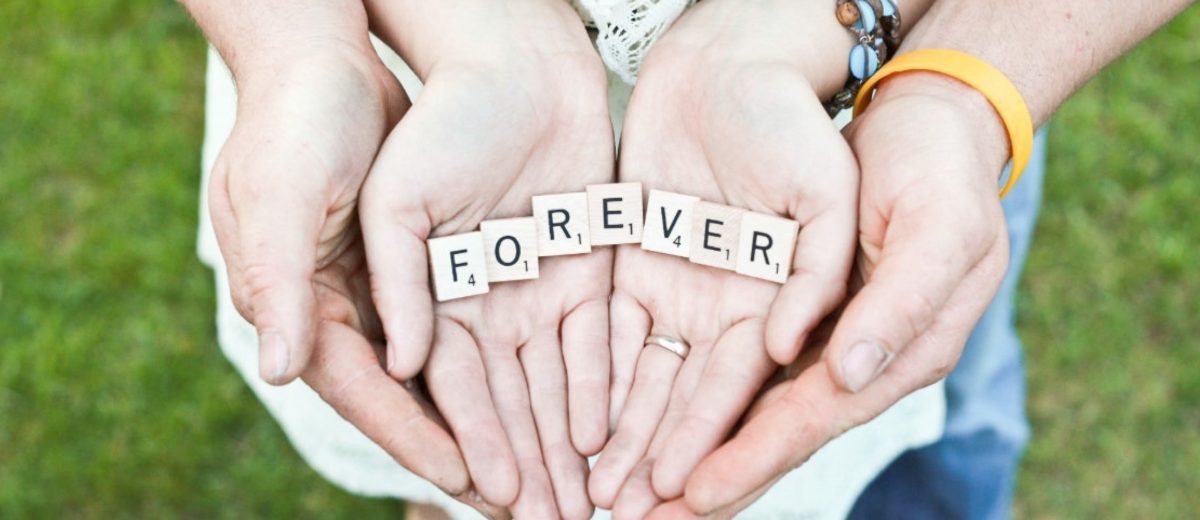To expect marriages to last till ‘death do us part’ is simply unreasonable – or so I heard recently. Life circumstances, mutual interests, careers and other factors fluctuate and so our expectations concerning marriage should also be flexible, so the argument goes.
Sounds reasonable, until you begin thinking of the long-term consequences to society, for one thing. Yesterday my siblings and I celebrated my mother’s 95th birthday in New Zealand. Most of our offspring and partners were present, making a group of 30 or so, with others connecting by social media from Australia and the Netherlands. I tried imagining how different that scenario would have been if each marriage represented there, a dozen or so, had been a ‘flexible arrangement’. What a tangle of permutations and combinations that would be!
Let’s face it, blood is thicker than water. Bonding and commitment to children of earlier relationships of one’s current partner cannot always be expected to be on the same level as with your own flesh and blood.
Yet I suspect such extended family celebrations of this sort and size are becoming a rarity. Also rare is the faithful exclusive commitment of my parents to each other for 65 years – until death did them part – which was the foundation for our particular get-together.
That fidelity in turn gave my siblings’ generation a strong example to pass on to our children’s generation. The bottom line is, healthy marriages remain vital for the flourishing of a society. If we really are concerned about human flourishing, the welfare of society or what is often called the ‘common good’, then we need to promote healthy marriages. They are worth investing in, working for and even fighting for.
Critical mass
Marriage is a major factor in reducing poor educational performance, juvenile delinquency, poverty, drugs and crime. Studies show that children with single parents are much more likely to be poor as those living with both parents. Many single parents do a heroic job bringing up their kids and deserve all the support they can get. But few would choose that role if they had the choice for a stable marriage relationship. Married parents, when for a short period find themselves having to carry all the responsibility alone, can only wonder how single parents manage the task full time.
However, separation, divorce and living together arrangements are commonplace across the economic classes these days. ‘Blended’ or ‘rainbow’ families are are increasingly becoming ‘normal’. NY Times best selling author, Jim Wallis, in his book ‘The (Un)Common Good’ says that without a critical mass of healthy and functional marriages, a society steers into real trouble.
Advertisements in the Netherlands for ‘Second love’ dating sites or presenting divorce as a ticket to freedom, along with the steady stream of film and television dramas glamourising adultery are alarming indicators of the course society is steering. Thank God for the Dutch politician who promoted an advertising campaign stating that adultery is ‘the family game where everybody loses’. (This is a word play on the Dutch word for adultery, ‘overspel’; ‘spel’ means ‘game’.)
Over lunch this week with a childhood friend, I heard about his son’s divorce and the devastating effect on his teenage grandchildren. ‘I have every reason to hate divorce,’ he said with deep sense of regret.
Wallis writes that teaching children the virtues of commitment, integrity, responsibility and fidelity in both their economic and sexual lives has to be a central part of parenting today. He calls for a counter-cultural commitment to covenantal rather than recreational sexuality in a society where promiscuous sexuality has become normative, even in the faith community.
Wake up
Next week Wednesday is Valentine’s Day, February 14. That means Marriage Week starts in many countries this coming Wednesday, to encourage those fortunate enough to be married to give special time and attention to that relationship. Marriage Week in a nation draws together media, business, government, faith groups and in fact anyone who cares about marriage. Thousands of local events occur each year in bars, restaurants, community halls and churches.
Marriage Week celebrates the diversity and vibrancy of marriage as the basis for family life, in the conviction that marriage is a brilliant institution society should celebrate. It is a time to say “Wake up. Marriage is a great idea!”.
Since a healthy marriage is a skill, it’s an opportunity to learn some new skills to turn marriages from good to very good! A great marriage can be learned, just the same way as a person can learn to read a book, drive a car or ski down a mountain.
Find out what is happening in your country this week on the Marriage Week website. Invest in your own future and in ‘the common good’.
Till next week,




[…] This post was first published on Jeff Fountain’s Weekly Word. […]